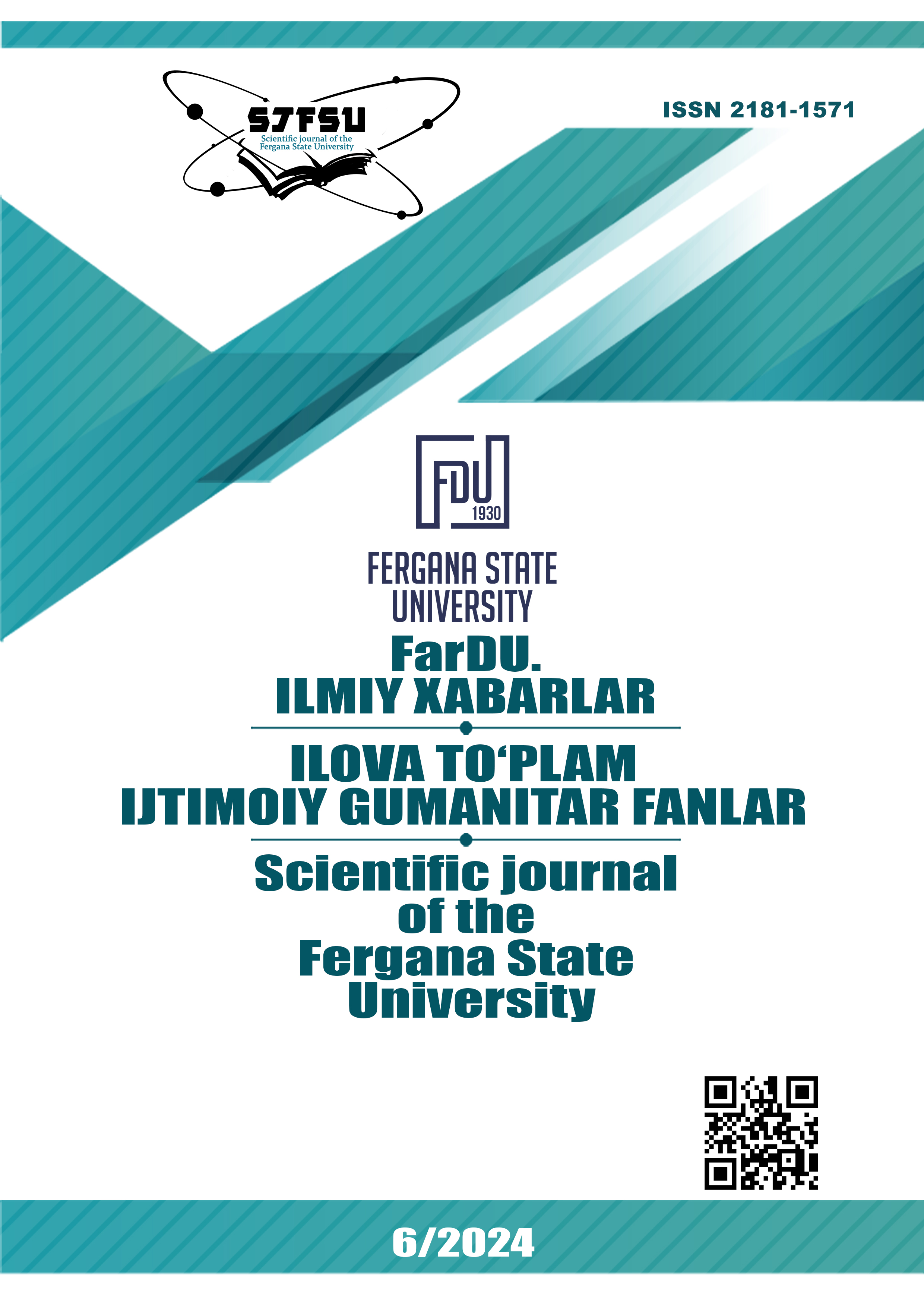THE INTER-LEVEL ANALYSIS OF QUANTITATIVE UNITS IN UZBEK AND ENGLISH LANGUAGES
Keywords:
quantum, quantitativeness, quantity, quantification, quantitative segmentation, numeratives, quantifiers.Abstract
This article explores the expression of quantitativeness in Uzbek and English, focusing on linguistic tools and their application. A detailed analysis of quantitativeness at phonetic, morphological, lexical, and phraseological levels has been conducted. The study examines how quantitativeness, originally a concept in exact sciences such as mathematics and physics, is applied in linguistics through various grammatical means. The use of specific grammatical and lexical units, including numerals, numeratives, and quantifiers, is analyzed. In Uzbek, quantitativeness is expressed through counting words and specific lexical units, while in English, quantifiers are used with countable and uncountable nouns. The results of the research highlight the scientific importance of quantitativeness in linguistics, showcasing its potential for precise and vague expression of quantitative indicators in linguistic units. Additionally, the study identifies commonalities and differences in the representation of quantitativeness in Uzbek and English based on linguistic analysis. This article serves as a theoretical and practical foundation for studying quantitativeness at various linguistic levels.
References
Cambridge Dictionary. (n.d.). Quantity. In Cambridge Dictionary. Retrieved December 8, 2024, from https://dictionary.cambridge.org/dictionary/english/quantity
Collins COBUILD English Grammar, 1990. – P.89.
Merriam-Webster. (n.d.). Quantitativeness. In Merriam-Webster.com dictionary. Retrieved December 8, 2024, from https://www.merriam-webster.com/dictionary/quantitativeness
Oxford Languages. Oxford Languages Dictionary.
The Oxford dictionary of English grammar. Oxford quick refence 2nd edition, 2014. – P.345.
O‘zbek tilining izohli lug‘ati, 2-jild. Toshkent: O‘zbekiston milliy ensiklopediyasi, 2006.
Инглизча-ўзбекча луғат. – Тошкент, 2013. – 550 б.
Солнцев В.М. Лингвистическая типология. – М.: Наука, 1985. – С.34.
Downloads
Published
Issue
Section
License
Copyright (c) 2025 Scientific journal of the Fergana State University

This work is licensed under a Creative Commons Attribution-NonCommercial-NoDerivatives 4.0 International License.
How to Cite
Most read articles by the same author(s)
- , THE INTER-LEVEL ANALYSIS OF QUANTITATIVE UNITS IN UZBEK AND ENGLISH LANGUAGES , Scientific journal of the Fergana State University: No. 6 (2024): Scientific journal of the Fergana State University ADDITIONAL COLLECTION (Social humanities sciences)
- , EXPRESSION OF QUANTITATIVENESS IN PHRASEOLOGICAL UNITS WITH NUMERICAL COMPONENTS IN UZBEK AND ENGLISH LANGUAGES , Scientific journal of the Fergana State University: No. 6 (2024): Scientific journal of the Fergana State University ADDITIONAL COLLECTION (Social humanities sciences)

